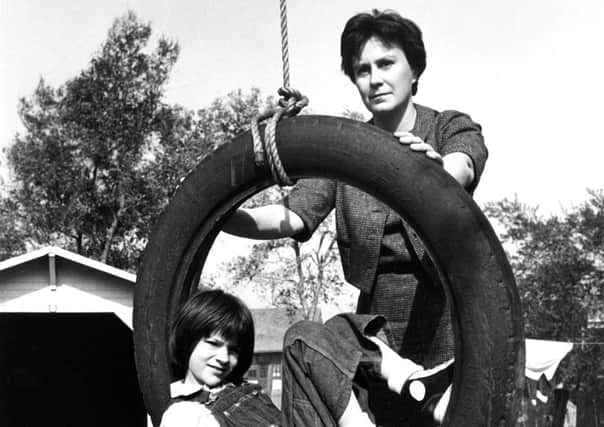Book review: Go Set A Watchman by Harper Lee


Go Set A Watchman
Harper Lee
William Heinemann, £18.99
I wonder what I would have thought of Go Set A Watchman had I been an editor at literary magazine Lippincott’s in the 1950s encountering it as a manuscript by an unpublished author, rather than as a critic in 2015 who read Harper Lee’s To Kill A Mockingbird as a set text at school? It is a fascinating mixture of the jejune and the genius, of problems and promise.
Were I the 1950s editor, I am sure I would point out that by far the strongest sections are those when Jean Louise, once nicknamed Scout, is reminiscing about her childhood in the fictional Maycomb, Alabama. There is a gleeful little section describing Scout, her brother Jem, and their friend Dill playing at various games (Tarzan, with Dill indignant at being the ape again; a parody of a religious revival with a be-sheeted Dill representing the Holy Ghost).
Advertisement
Hide AdMight this perspective actually be the basis for an entire novel, where through a child’s eyes the adult world is examined? I’d recommend ditching both the section where Scout is kissed, becomes convinced she is pregnant, and thinks about suicide, as well as the prom scene, with the love interest Henry Clinton, where she requires “falsies”.
The material about the claustrophobic etiquette of Maycomb is well done – although there is slightly too much explication on its history – and at its best has a kind of Mitford quality (“if you did not want much, there was plenty” is neat, as is the description of a vicar having “the greatest talent for dullness ever seen in a man on the near side of fifty”). And by the way, although Jem’s death is mentioned early on, we don’t really see what impact this has on the family, except for Scout unusually wearing a hat to his funeral.
Although, as her agent wrote, “incidentally, Miss Lee can write”, there are points where a blue pencil would have to be wielded. “Asquithian” is a very odd adjective; the mind as “spectral zither” seems laboured; and the “delight almost physical” in the opening sentence seems banal, to cite a few examples.
But the meat of the novel is the relationship between Scout and her father Atticus, a lawyer, against the backdrop of race relations in the American South in the 1950s. Scout idealises her father, and the novel’s arc is her disillusion as she realises that the person who once defended a black man falsely accused of rape, can describe African Americans as “backwards”, question whether she would send her child to “a school dragged down to accommodate Negro children”, attend Ku Klux Klan meetings, refer to the “fantastic demands and shabby ideas” of the NAACP, and read pamphlets with titles like The Black Plague – a publication which “makes Goebbels look like a naïve little country boy”. Her moral crisis at these revelations is handled well – “you who called me Scout are dead and in your grave,” she says. “I despise you and everything you stand for,” she shouts, to which, with patrician disdain, he replies, “Well, I love you”. Is this foreshadowed in the opening chapter and its reference to the “unmistakably profane glint” in his eyes when he debunks the aggravating Aunt Alexandra’s family stories?
The politics is actually rather well handled. Scout’s uncle mentions that she is living in the Atomic Age in New York, while “the South’s just beginning its Industrial Revolution”. The idea of the South having a different culture which is imperilled by Northern high-handedness is sketched subtly, as is the resentment of the white communities at the improvements in rights and opportunities for the African American population.
Alexandra, when she learns Scout has visited the former family maid, Calpurnia, says “nobody in Maycomb goes to see Negroes any more, not after what they’ve been doing to us”. While Scout on the train approves of seeing African American homes with television aerials, other characters lament that they “have enough money to buy cars – they’re a public nuisance”.
Advertisement
Hide AdIt is, as Lee’s agent says, “an eye-opener for many northerners as to southern attitudes”. This gives the title, from Isaiah 21, a double meaning. Although in the text it refers to the conscience (and there is a hint that the devastating interview with Atticus is in part his attempt to make Scout rely on her own moral judgement), the Biblical lines are actually about an impending cataclysm.
Perhaps the author of this novel should read some of the literature already in this field: Ralph Ellison’s Invisible Man, James Baldwin’s Go Tell It On The Mountain, Richard Wright’s Native Son or Zora Neale Hurston’s Their Eyes Were Watching God? Do we need a white denunciation of white racism, or a more aspirational picture? One character sagely advises “the time your friends need you is when they are wrong”.
Advertisement
Hide AdScout is an endearing character – she tells us she used to be a “juvenile desperado” but appears a more divided and introspective figure, except for a laugh-out-loud moment when she tells her aunt “Why don’t you go pee in your hat?” The figure of Uncle Jack is interestingly eccentric, but the final revelation that he was in love with Atticus’s late wife seems to have little bearing on any of the events in the novel.
Were I the 1950s editor, I would probably not recommend publication, though I would be intrigued to see what Harper Lee does next. As one character observes in the book, there is “a difference between we who write and a writer”.